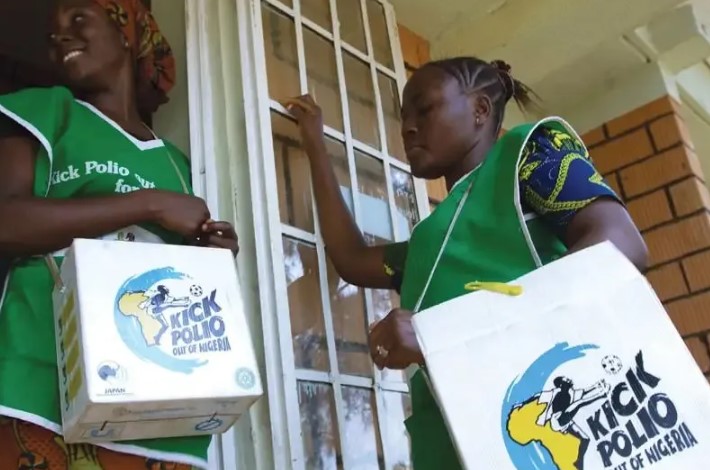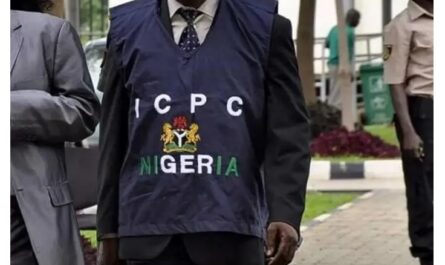As of August 25, 2020, Nigeria was officially declared free of wild poliovirus by the World Health Organisation, WHO.
Nigeria was certified as being free of wild polio after meeting all of the requirements, one of which was that no wild poliovirus cases had been found in the country for three years.
Before the certification, Nigeria, Afghanistan, and Pakistan were the world’s only wild polio-endemic countries.
Polio is an infectious disease caused by the poliovirus that causes paralysis of the arms and legs. While it causes serious residual effects, polio can be prevented by vaccination.
After the WHO passed a resolution to eradicate polio worldwide in 1988, the Global Certification Commission led the way in establishing a formal certification process, asking each of the six WHO regions to set up a Regional Certification Commission.
Since then, polio eradication has enjoyed remarkable success, bringing about the reduction of the scourge by over 99%, from an estimated 350,000 cases then, to 33 reported cases in 2018, according to WHO data.
In 1996, WHO Regional Director for Africa created the Africa Regional Certification Commission (ARCC) for Polio Eradication: a 16-person independent body tasked with overseeing this process, and later on containment activities in the African region.
On August 25, 2020, Africa was certified polio-free (zero cases of the wild poliovirus). Nigeria was the last polio-endemic country in Africa.
Infectious diseases in Nigeria Fighting infectious diseases in Nigeria has been hampered by poverty and insecurity for a long time.
Difficulties included a large number of people living in remote villages, a lack of reliable “cold chains” (refrigerated transport networks to keep vaccinations alive), great distances to urban clinics, and inadequate roads.
A journey that started over 25 years ago, Africa’s race to polio eradication was quite a slow, bumpy, tortuous, and lengthy one. There were setbacks and challenges here and there, occasioned mainly by insurgency, superstition, mutual suspicion and lack of financial and political will, WHO stated.
According to a press release headlined “WHO and UNICEF congratulate Nigeria on eradicating wild poliovirus”; advocated for the improvement of routine immunisation,”
“It is a momentous achievement that calls for celebration,” said Peter Hawkins, UNICEF Representative in Nigeria. “This historic achievement not only signifies the end of the wild poliovirus across the entire African continent but is also a significant springboard towards attaining global polio eradication.”
UNICEF and WHO pledged to continue to support Nigeria in strengthening its primary healthcare system under the Primary Health Care Under One Roof (PHCUR) policy initiated by the Nigerian Government, including the goal of having at least one functional PHC in every ward in the country.
Polio Eradication
In 2020, President Muhammadu Buhari, in a press statement by his spokesperson, Femi Adesina, assured the global community that Nigeria will sustain the momentum and leverage the lessons learned from polio eradication to strengthen her health system, especially PHC, and prioritise health security.
Health experts are urging countries on the continent to tread with caution as all strains of the contagion are yet to be fully eliminated.
This is because the strain is a rare form of the virus that mutated from the oral polio vaccine and can then spread to under-immunised communities.
WHO identified a number of these cases in Nigeria, the Democratic Republic of the Congo, the Central African Republic, and Angola.
Over 23 million children were vaccinated as part of the Sub-National Immunisation Plus Days (SNIPDs) campaign in October 2020 to boost immunity. This was an initiative of the Federal Government, the World Health Organisation, and other partners.
The intervention, from October 31 to November 24, reached 23,041,255 0–59-month children in 11 states, namely Bauchi, Borno, Jigawa, Kaduna, Kano, Katsina, Kwara, Niger, Sokoto, Yobe, and Zamfara with the Oral Poliovirus vaccines (OPV).
The WHO continues to emphasise that high population immunity through vaccination is necessary to sustain gains in polio eradication and prevent future outbreaks.
With support from the Global Polio Eradication Initiative (GPEI), which includes WHO, UNICEF, GAVI, CDC and Rotary, NPHCDA says it conducts two rounds of house-to-house polio campaigns with an aim of vaccinating at least 95% of children aged 0-5 years.
In addition, to better address outbreaks of circulating vaccine-derived poliovirus type 2 (cVDPV2), as recommended by WHO, Nigeria deployed an additional outbreak response tool, the novel oral polio vaccine (nOPV2), specifically designed to protect children from the only type of poliovirus that remains in the country.
Eradication
The strategies for polio eradication work when they are fully implemented. This is clearly demonstrated by the successful eradication of the disease in most countries of the world.
Millions of children will continue to be protected from the crippling disease with immunisation systems being revitalised, and polio vaccination campaigns must be used as a platform for the delivery of other health services, particularly Vitamin A and deworming drugs.
Finally, strengthening health systems through improved management, community outreach, social mobilisation, and intersectoral collaboration would help maintain the eradication of the disease.
Key facts
Polio (poliomyelitis) mainly affects children under 5 years of age.
One in 200 infections leads to irreversible paralysis. Among those paralysed, 5–10% die when their breathing muscles become immobilized.
Cases due to wild poliovirus have decreased by over 99% since 1988, from an estimated 350 000 cases then, to 6 reported cases in 2021.
As long as a single child remains infected, children in all countries are at risk of contracting polio. Failure to eradicate polio from these last remaining strongholds could result in a global resurgence of the disease.
In most countries, the global effort has expanded capacities to tackle other infectious diseases by building effective surveillance and immunization systems. – WHO
Source: radionigeria




